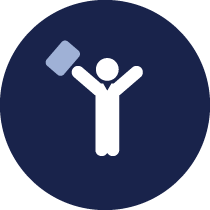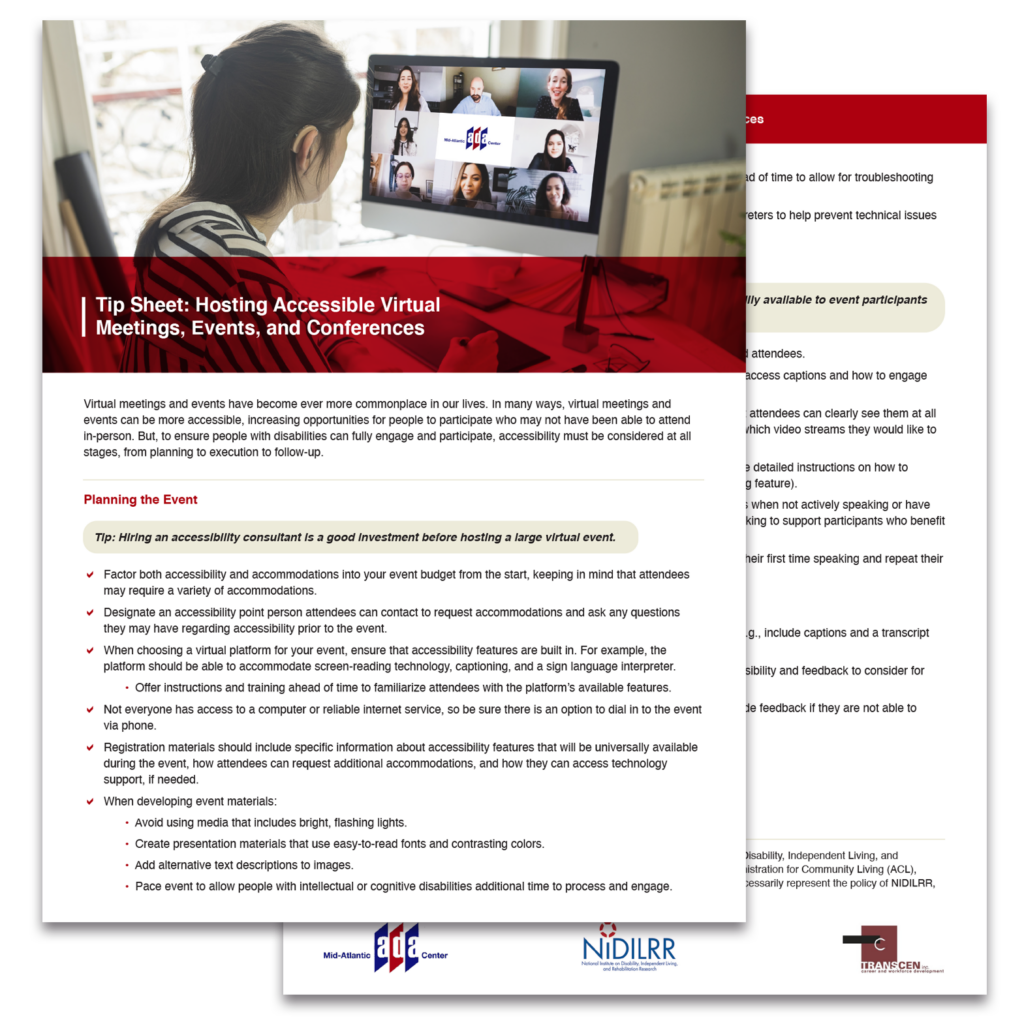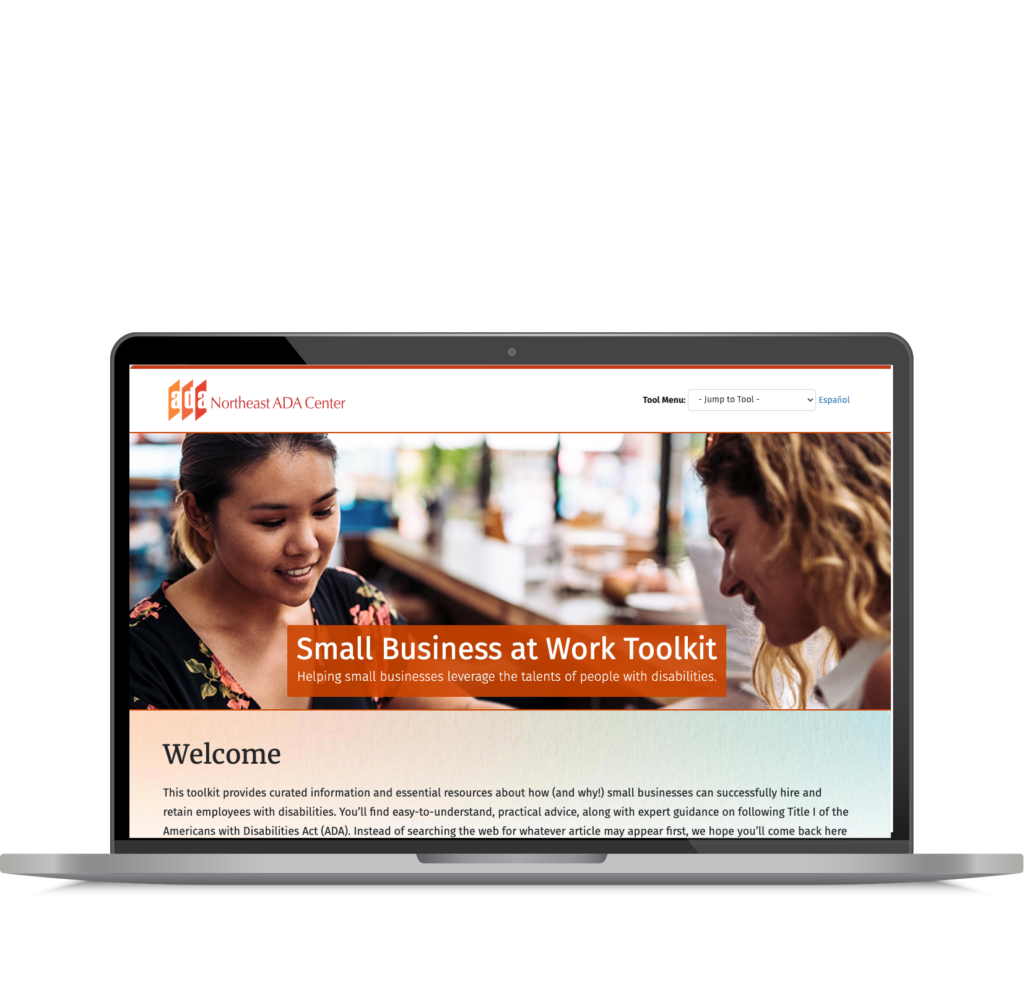Northeast ADA Center
Northeast Americans with Disabilities Act (ADA) Center: Small Business at Work Toolkit
Small businesses are major drivers of job growth in the U.S., employing nearly half of the nation’s private-sector workforce. The Northeast ADA Center developed the Small Business at Work toolkit to provide support to employers in hiring people with disabilities.
Small businesses are major drivers of job growth in the U.S., employing nearly half of the nation’s private-sector workforce. The Northeast ADA Center developed the Small Business at Work toolkit to provide support to employers in hiring people with disabilities.

Project Overview
The Northeast ADA Center provides information, guidance and training on implementation of all aspects of the ADA. Together with Cornell University’s Yang-Tan Institute on Employment and Disability, it conducted a 2019 research study about small business and disability employment through a grant from the National Institute on Disability, Independent Living, and Rehabilitation Research. Findings revealed several common information gaps among small business owners, human resources staff, managers and front-line supervisors related to disability employment, including their requirements under the ADA.

Feedback and Visibility
The 2019 research study helped to inform “Small Business at Work,” a no-cost, web-based resource that offers easy-to-understand, practical advice on disability employment best practices and expert guidance.
To support its qualitative user testing efforts, the Northeast ADA Center turned to Concepts Communications for help recruiting small business representatives to provide feedback on the toolkit. This involved identifying eligible small businesses in the Center’s assigned regions of New York, New Jersey, Puerto Rico and the U.S. Virgin Islands, and soliciting them to participate in user focus groups. Feedback gleaned from these efforts informed updates and enhancements to the tool’s content and structure.
In addition, Concepts Communications executed a visibility offensive to raise awareness of the toolkit and drive its usage. This included developing an outreach implementation plan for the project, drafting promotional copy about the toolkit, issuing a formal press release and conducting proactive outreach to media, employer/business organizations, disability advocacy groups, public sector agencies and more to promote the toolkit and seek cross promotion. Results included placement of a guest blog about the toolkit and more than 90 media placements potentially reaching 125,000,000 readers.

